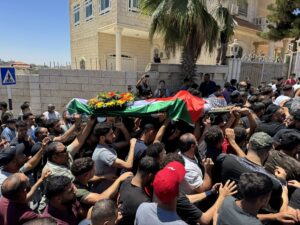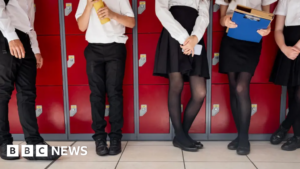Israeli Airstrike Kills Children Collecting Water As Gaza Crisis Worsens
Clean water has grown scarce in Gaza, where Israeli forces have bombed the infrastructure and blocked aid necessary to maintain water systems.
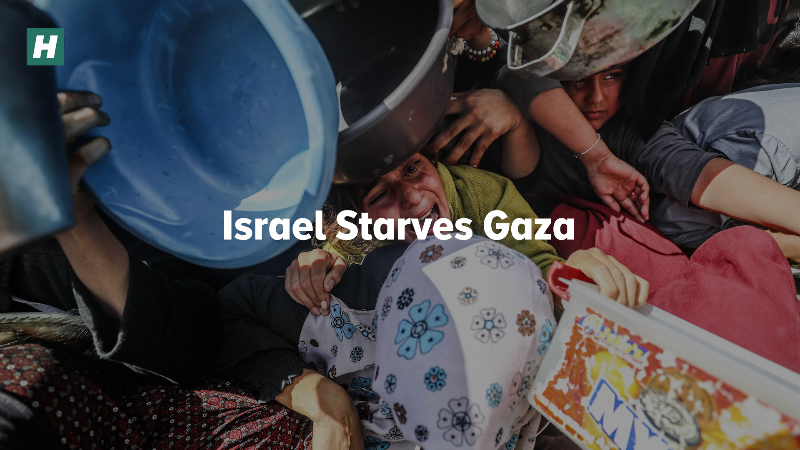
An Israeli airstrike on Sunday killed at least seven children who were waiting to collect clean water at one of Gaza’s few remaining distribution points, as Palestinians grow increasingly desperate in the face of Israel’s continued bombing campaign and near-total humanitarian blockade.
Children were lined up with their containers at the water distribution site in central Gaza’s Nuseirat camp when an Israeli missile hit the tent — killing at least 10 people and wounding an additional 17, according to Al-Awda Hospital. At least seven of the dead were children.
Graphic video shared by Palestinian journalists on the ground showed people running toward the tent, where bloodied bodies were strewn amid the yellow and blue water canteens. Men were seen trying to transport the dead and wounded as screams were heard.
“Oh God, I swear we don’t want water, my son. I swear we’ve made it through two months of thirst. Why did you try to get water now?” cried one man carrying his son’s bloodied body while another son walked beside him, in a video taken by journalist Fadel Mghari.
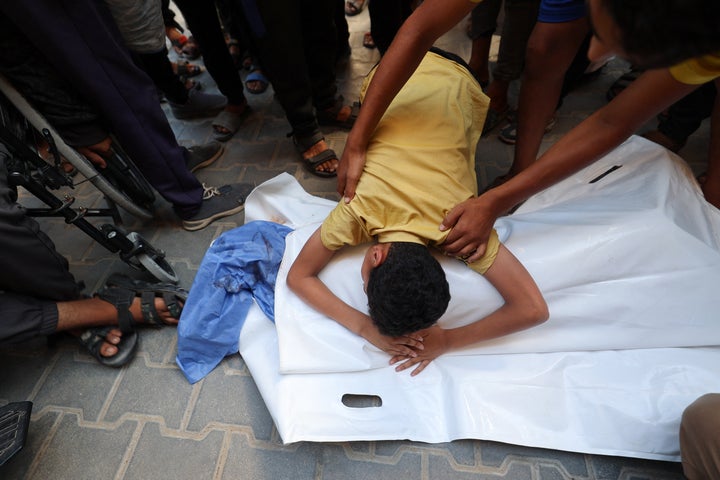
The Israeli military acknowledged the attack, claiming that it was trying to target a terrorist but experienced a “technical error” that led the missile to go “dozens of meters from the target.”
“The IDF regrets any harm to uninvolved civilians,” the statement said.
In light of the “horrific” attack, UNICEF Executive Director Catherine Russell demanded that Israel “review the rules of engagement,” noting that the military killed several women and children waiting for nutritional supplements just days earlier.
“We condemn this latest massacre of children desperately seeking water for their families as we have condemned the uncounted war crimes Israeli forces commit on a daily basis, all with the complicity of our own government and using American taxpayer-supplied weapons,” the Council on American-Islamic Relations said on Sunday. “The slaughter of children must stop.”
Clean water has grown significantly scarce in Gaza, where Israeli forces have bombed the infrastructure and blocked humanitarian assistance necessary to prevent a water crisis. The military has effectively destroyed Gaza’s desalination plants, impeding larger-scale production of drinking water.
“A water truck visits every three to four days. We don’t get enough for our needs,” Aya Fayoumi, a displaced Palestinian, told Al Jazeera. “There’s never any water in the toilets — there’s barely enough drinking water — so we have nothing left for personal hygiene or washing clothes.”
Israeli forces have targeted 112 freshwater filling points and destroyed 720 water wells, according to Gaza’s Government Media Office. Palestinians — oftentimes children — will risk their lives waiting hours at water distribution sites just for the possibility of filling their canteens. More than 700 Palestinians have been killed waiting in line for water as part of a “systematic thirst war,” the media office said.
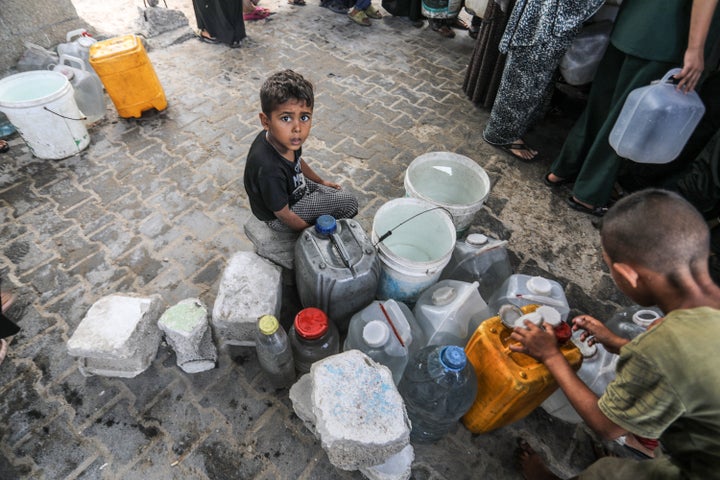
The casualties at the water distribution site are on top of the daily massacres Israeli forces and hired mercenaries carry out at militarized food distribution sites run by the shadowy U.S.-backed Gaza Humanitarian Foundation. Humanitarians say that Palestinians are being forced to choose between starving to death and getting shot trying to access food.
On Saturday, several United Nations agencies penned a joint statement warning that Israel’s continued blocking of fuel deliveries will soon lead to the suspension of many essential services. Gaza’s Government Media Office also said that the restriction of fuel has already caused a “near-total paralysis of water and sewage networks.”
“Without fuel, bakers and community kitchens cannot operate. Water production and sanitation systems will shut down, leaving families without safe drinking water, while solid waste and sewage pile up in the streets,” the agencies said. “These conditions expose families to deadly disease outbreaks and push Gaza’s most vulnerable even closer to death.”

